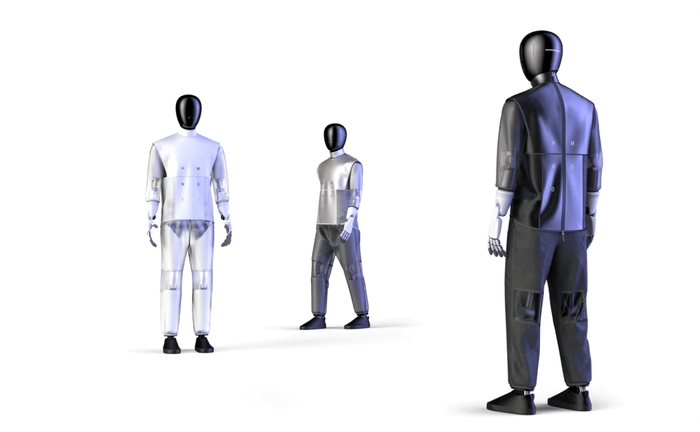Flying Taxi Company Buying 120 Chargers; Liquid-Cooled CablesFlying Taxi Company Buying 120 Chargers; Liquid-Cooled Cables
The chargers use a long, liquid-cooled charging cable for high-performance charging of the electric jets
.png?width=1280&auto=webp&quality=95&format=jpg&disable=upscale)
A German developer of an electric vertical takeoff and landing (eVTOL) vehicle is partnering with an electric vehicle charging infrastructure and microgrid company to provide charging systems for its electric jets.
Electric aerial vehicle (EAV) maker Lilium also announced it is buying 120 chargers from Star Charge for its ground and flight-testing vehicles.
The chargers use a long, liquid-cooled charging cable for high-performance charging.
“Our partnership with Star Charge will support the Lilium Jet´s development and certification along with our customers’ ground infrastructure development,” said Lilium chief commercial officer Sebastien Borel. “Its high performance and liquid-cooled charging cable is a unique feature and Star Charge´s proven expertise in charging infrastructure is crucial for regional air mobility,”
The deal, announced at the Singapore Airshow, followed an announcement earlier this week that Lilium is teaming with jet and helicopter operator PhilJets to establish advanced air mobility (AAM) services in the Philippines and other Southeast Asia countries.
.jpg?width=700&auto=webp&quality=80&disable=upscale)
Lilium and PhilJets plan to jointly develop routes and determine passenger demand for an on-demand eVTOL service in the region.
That deal also included the sale of 10 Lilium jets to PhilJets.
This is not the first announcement relating to EAV services starting in the Philippines.
LuftCar, the developer of a hydrogen-powered eVTOL, also is expanding into the Philippines via a new partnership.
LuftCar and eFrancisco Motor Corporation (eFMC) in the Philippines recently formed a strategic partnership to develop and deploy the LuftCar flying car system in the Philippines.
The LuftCar hydrogen-powered air vehicle would connect to and lift road vehicles created by eFMC, a major jeepney manufacturer.
LuftCar plans to lead the EAV vehicle prototype development and eFMC would provide the vehicle chassis.
In the Lilium-PhilJets partnership, the plan is to bring high-speed regional air mobility to Southeast Asia.
The Lilium eVTOL craft is a jet, unlike most EAVs.
The seven-seater vehicles are planned as a regional air mobility service, connecting cities and towns up to 125 miles apart at speeds of up to 185 mph.
The flying vehicle features forward canards (small wings near the front) along with main wings and a distributed propulsion system with fixed landing gear without hydraulics.
During takeoff, the plane would use its 36 electric ducted fans to hover for up to 25 seconds and 20 seconds during the landing phase, according to the company. Most of the flight time would be in the cruise stage with a relatively short takeoff and landing time.
The company estimates the range of the craft at 150 miles.
Lilium recently teamed with the Lufthansa Group to explore opportunities in aviation including ground and flight operations, EAV maintenance and flight training in Europe.
Founded in 2015, Lilium has manufacturing facilities in Munich, Germany, with teams in the U.S. and Europe and recently started production of its vehicle with the European market expected to account for more than 9,000 vehicles through 2035.
The fuselage for the Lilium jet was developed by Aciturri in Spain, with delivery to Lilium facilities in Germany. Aciturri, also a Lilium investor, has designed and manufactured airframe components for Airbus, Boeing and Embraer.
Lilium recently secured $192 million in financing in addition to a coming public offering. It received funding from different investors including board members and Tencent Holdings, an initial backer.
The Federal Aviation Administration (FAA) recently issued Lilium a certificate validation of its jet, having previously obtained airworthiness authority from the European Union Aviation Safety Agency.
The company is not alone in the race for new air transportation services, including flying cars, personal air vehicles, both ultralights, which do not require a pilot license, and certified vehicles, which require a license.
One eVTOL company, Joby Aviation, recently announced the planned building of a facility in Dayton, Ohio, to deliver up to 500 eVTOL vehicles a year. Joby has partnerships with Uber and Delta Air Lines.
Like what you've read? For more stories like this on flying cars and emerging technologies, sign up for our free daily email newsletter to stay updated!
Read more about:
Flying CarsAbout the Author
You May Also Like







